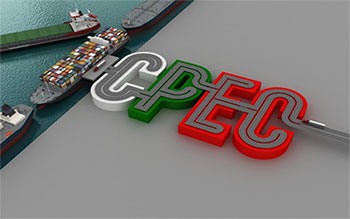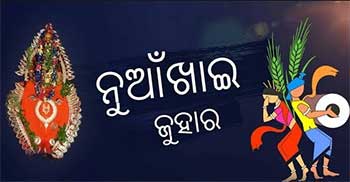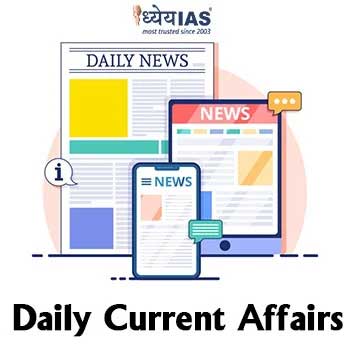National Council for Transgender Persons
Why in NEWS?
- The Ministry of Social Justice and Empowerment has constituted the National Council for Transgender Persons, a requirement under the Transgender Persons (Protection of Rights) Act, 2019.
ABOUT
- It has been constituted to formulate policies, programmes, legislation and projects regarding members of the community for achieving equality and full participation by them.
- Functions of the council include advising the Centre on the formulation of policies, programmes, legislation and projects with respect to transgender persons, monitoring and evaluating the impact of policies and programmes designed for achieving equality and full participation of transgender persons.
- The other functions of the council are to review and coordinate the activities of all the departments of government and other governmental and non-governmental organisations dealing with matters relating to transgender persons, to redress the grievances of transgender persons, and to perform such other functions as may be prescribed by the Centre.
- The council have representatives from community members, five states and 10 central departments.
- Its chairperson will be the Union Minister of the Ministry of Social Justice and Empowerment while the vice-chairperson will be the junior minister in the ministry, according to the gazette notification.
- The other members will be from the Ministry of Health and Family Welfare, Ministry Home Affairs, Ministry of Housing and Urban Affairs, Minority Affairs ministry and Rural Development ministry among others, it said.
- The representatives of the state governments and union territories by rotation, one each from the north, south, east, west and northeast regions have also been announced.
- Five representatives of the transgender community, one each from the north, south, east, west and northeast regions have also been announced- Laxmi Narayan Tripathi, Gopi Shankar Madurai, Meera Parida, Zainab Javid Patel and Kak Chingtabam Shyamcand Sharma.

Transgender Persons (Protection of Rights) Bill, 2019
- The Bill defines a transgender person as one whose gender does not match the gender assigned at birth. It includes trans-men and trans-women, persons with intersex variations, gender-queers, and persons with socio-cultural identities, such as kinnar and hijra.
- Intersex variations is defined to mean a person who at birth shows variation in his or her primary sexual characteristics, external genitalia, chromosomes, or hormones from the normative standard of male or female body.
- Prohibition against discrimination Any person who is found to be compelling a transgender person into bonded labour denying right of public passage to a transgender person, evicting a transgender from his/her place of residence, causing physical, sexual, verbal, economic and emotional abuse, can be penalised with imprisonment of not less than six months, that can extend up to two years.
- It prohibits discrimination against a transgender person on grounds including denial, discontinuation or unfair treatment in educational establishments, services, employment, healthcare.
- The Bill states that a transgender person shall have the right to self-perceived gender identity which can be obtained at the District Magistrate's office and a revised certificate is to be obtained if sex is changed.
- The bill has a provision that provides transgender the right of residence with parents and immediate family members.
- The Bill mentions that the Government will formulate transgender sensitive, non- stigmatising and non-discriminatory welfare schemes and programmes.
- The government shall provide education, sports and recreational facilities for transgender people.
- Provisions for separate HIV surveillance centres and sex reassignment surgeries should also be provided by the government.
China-Pakistan Economic Corridor (CPEC)
Why in NEWS?
- A day after the Pakistan-China joint statement mentioned Jammu and Kashmir, India on 22 nd August 2020, categorically rejected the reference and conveyed again its concerns on the China-Pakistan Economic corridor.

About
- In their second annual strategic dialogue on August 21, Chinese Foreign Minister Wang Yi and his Pakistan counterpart Shah Mahmood Qureshi discussed the Kashmir issue and progress.
- Ministry of External Affairs said that the Union Territory of Jammu and Kashmir is an “integral and inalienable” part of India and that it expects the parties concerned not to interfere in the country’s internal matters.
- India has repeatedly conveyed its concerns to both China and Pakistan on the projects in so-called China Pakistan Economic Corridor, which are in the territory of India that has been illegally occupied by Pakistan.
- India resolutely oppose actions by other countries that change the status quo in Pakistan-occupied Jammu and Kashmir and call on the parties concerned to cease such actions.
China Pakistan Economic Corridor (CPEC)
- The China-Pakistan Economic Corridor (CPEC) is a part of China’s ambitious One Belt One Road (OBOR) Initiative to link China with Europe.
- Started in 2013, the CPEC is a developmental project between Pakistan and its all- weather friend China.
- The 3,000 km-long China–Pakistan Economic Corridor (CPEC) consists of highways, railways, and pipelines.
- CPEC eventually aims at linking the city of Gwadar in South Western Pakistan to China’s North Western region Xinjiang through a vast network of highways and railways.
- The proposed project will be financed by heavily-subsidised loans, that will be disbursed to the Government of Pakistan by Chinese banks.
- CPEC Passes through Pakistan-occupied Kashmir (PoK) and Baluchistan thus India has not supported OBOR.
- China’s insistence on establishing the CPEC project through PoK is seen by India as infringing its sovereignty.
- China is building roads and infrastructure in the disputed territory of Gilgit-Balistan, which is under Pakistan’s control but which India claims as a part of Jammu and Kashmir.
- If CPEC project gets implemented successfully, this would hamper India’s strategic interests in the South Asian region. It will serve Beijing's strategic ambition to encircle India.
- CPEC can aid Pakistan’s legitimacy in the Kashmir dispute.
- China’s increasing footprints in the South Asian region is detrimental to India’s strategic hold.
Auspicious Occasion of Nuakhai Juhar
IN NEWS
- The Prime Minister, Shri Narendra Modi has greeted the people on the auspicious occasion of Nuakhai Juhar.
ABOUT
- Nuakhai or Navakhai is an agricultural festival mainly observed by people of Western Odisha and Southern Chhattisgarh in India.

Saka Samvat Gregorian Calendar
- Chhaitra March 21 – April 20
- Vaishakha April 21-May 21
- Jyeshtha May 22-June 21
- Ashadha June 22- July 22
- Shravana July 23-August 22
- Bhaadra August 22-September 22
- Ashwin September 23-October 22
- Kartika October 23-November 21
- Agrahayana November 22-December 21
- Pausha December 22-January 20
- Magha January 21- February 19
- Phalguna February 20-March 20/21
- Nuakhai is also called Nuakhai Parab or Nuakhai Bhetghat. It is also known as Navakhai parv in Chhattisgarh.
- The word ‘nua’ means new and ‘khai’ means food, so the name means the farmers are in possession of the newly harvested rice. The festival is seen as a new ray of hope, held the day after the Ganesha Chaturthi festival. It has a big significance for farmers and the agricultural community.
- The festival celebrated at a particular time of day which is called lagan. Arisaa pithaa is prepared to celebrate this festival. When the lagan comes, the people first remember their village god or goddess and then have their ‘nua’.
- Nuakhai is the agricultural festival of people of Western odisha. The festival is observed throughout Odisha, but it is particularly important in the life and culture of Western Odisha. It is a festival for the worship of food grain. It has its best celebration in the Kalahandi, Sambalpur, Balangir, Bargarh, Sundargarh, Jharsuguda, Sonepur, Boudh and Nuapada districts of Odisha.
OTHER INDIAN TRIBES CELEBRATING NUAKHAI
- Evidence can be found of the Nuakhai festival been observed by nearly all the major tribes in central and eastern India, with a minor difference in nomenclature.
- Jeth Nawakhai is celebrated among the Dudh Kharia and Pahari Kharia, Nawakhani amongst the Oraon and Birjia, Jom Nawa among the Munda and Birjia, Janther or Baihar-Horo Nawai by the Santal, Gondli Nawakhani by the tribal people of Ranchi district, Nawa by the Birjia, Nawa-Jom by the Birhor, Dhan Nawakhani by Korwa.
- Gautam observed a new corn offering and rice eating festival of the Santals in Santal Pargana which they term Jom Nawa.
CONCLUSION
- Nuakhai is a cohesive and unified force between people of the Western Odisha living across India.
- The modern Nuakhai festival, now being observed on the fifth day of the second fortnight of Bhadrava, was unquestionably given a new look of homogeneity and uniformity by various social organizations of Western Odisha, including the Odisha Government in 1991.
- It has lost some of its enormity and variety with the passage of time, but Nuakhai is still an occasion which endorses the patrimonial nature of the Sambalpuri culture and society.







